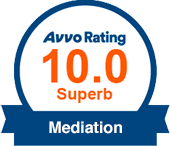Tag Archives: child’s preference
Do We Need a Co-Parenting Application?
Regardless of most custodial arrangements, parents need to be able to communicate about their children and, more often than not, that can be a challenge for many reasons. Now, some families are perfectly fine without the use of a co-parenting application. Some co-parents are able to communicate cordially, effectively, and efficiently on a regular… Read More »

Should I Litigate My Divorce or Try to Settle?
In Maryland, you can get divorced in one of two ways – an uncontested divorce or a contested divorce. An uncontested divorce involves getting an agreement between you and your spouse and submitting the settlement agreement to the court, which will then incorporate your agreement into your Judgment of Divorce. While you are still… Read More »

Kristin Cavallari Did It, How Do I? How to Best Introduce Children to Your New Relationship:
Last weekend Kristin Cavallari shared a photo of one of her sons spending time with her new boyfriend, Mark Estes. Post divorce, when parents begin dating again, the question of when to introduce your child(ren) to the new partner will inevitably arise. Consider the following when navigating how to introduce your child(ren) to your… Read More »

Parent Coordination: Helping You Co-Parent for the Benefit of Your Children
While some families are able to transition from an “intact” family to a family with two homes (either post-divorce or separation) seamlessly, the reality is most families cannot. No co-parenting relationship is exactly 50/50 even when parents are together. Sometimes, one parent stays home and takes a larger role in the day-to-day management of… Read More »
Third-Party Custody: Who Qualifies as a De Facto Parent?
Parents have a constitutional right to parent their children under the due process clause of the Fourteenth Amendment. Under very limited circumstances, the court can award custody to a third party (a non-biological or non-adoptive parent), even over the objection the parents. Maryland Courts have developed three “avenues” that a third-party can take to… Read More »
Is “NESTING” the right solution for your family?
Consider the following 4 factors in making this very important determination. What is Nesting: Nesting is a transitional living arrangement used by families going through separation and/or divorce wherein the children remain in the family home and the parents transition in and out of the family home in accordance with a predetermined schedule. During… Read More »

Back to School . . . . But Where?
Let’s say you were fortunate enough to resolve the custody and access of your young child following a divorce. Perhaps, like many couples, you agreed to an equally shared physical custody and decided to have joint legal custody. You and your ex have been getting along great and co-parenting together. You only live a… Read More »

Rebuttable Presumption in Favor of Shared Custody?
Maryland Leglislation Proposes a Barrier to “Best Interest of the Child” Standard When parents are divorcing, or separating, or cannot agree on a custody schedule, they turn to the Courts to make a decision. So what does the Court do? In Maryland, the Court will hear all the evidence presented regarding what each parent… Read More »

Best Practices for Post-Separation Travel with Children
Spring and summer breaks are upon us. It’s starting to feel more like a normal post-Covid world. You have two year-old travel vouchers waiting to be used. So naturally, it’s finally time to take a real vacation with the kids! But perhaps in these last couple of years you and your children’s other parent… Read More »
THE TOP 3 FACTORS THAT PLACE CHILDREN OF DIVORCE AT RISK AND HOW TO MINIMIZE THEM
High Conflict A high conflict divorce process often leads to less emotional availability and less sensitivity towards their children by divorcing parents. The result for children of high conflict divorce processes can be emotional insecurity, acting out, depression, anxiety and a negative impact on the immune system. These significant negative impacts may be minimized… Read More »










